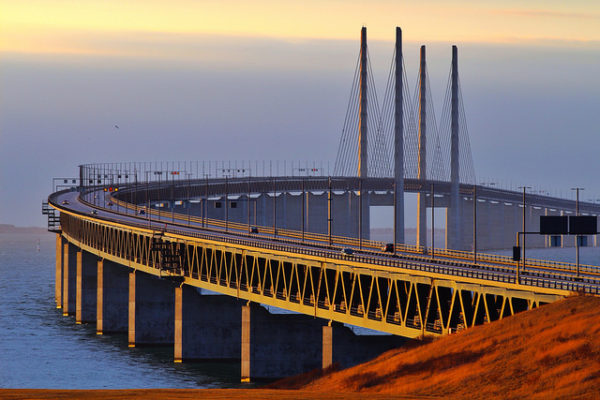Fact-finding visit to South Sweden

Read the report of this event here
On 14-15 December Social Platform Secretariat will carry out a two-days fact-finding visit to Malmö and Helsingborg in South Sweden to learn about successful practices of integration of migrants into Swedish life, with a particular focus on low and medium skilled migrant workers. We will meet with grassroots organisations, migrants themselves as well as local decision-makers to understand the situation and what additional support they may require from the EU. All-in-all we hope to be able to highlight the benefits of integration for society as a whole.
Our delegation will consist of European members and Social Platform Secretariat. (Download information about the delegation)
If you have any questions, please contact: Annica Ryngbeck (Policy & Advocacy Adviser) 02-508 16 39.
Programme
14 December – Visiting Malmö
Arrival
13.00-15.00 Lunch and visit to ‘Yalla Trappan’
‘Yalla Trappan’ started out as an EU-project and is today a permanent and financed activity in partnership with the city, and its methods are being up scaled across Sweden and beyond. It focuses on combating social exclusion of migrant women furthest away from the labour market who have little education and little to no work experience.
15.00-16.00 Short walking tour through Rosengård
Rosengård has a population of 23,563 of the municipality’s 307,758, most of it was built in the 60s and 70s as a part of the Million Programme (social housing) project, today almost 90% of the population have an immigrant background.
16.00-17.30 Visit the ‘Parenting project’ by Merit Utbildning
‘Merit Utbildning’ is a company that provides services for several communes in South Sweden. They provide individual coaching and Swedish language for immigrants, including for low-skilled migrants. One of their successful ESF funded ‘Parenting project’ targeted migrants on parental leave, by offering child care parallel with studies and coaching they shortened their way to the labour market.
18.00-21.00 Reception with local NGOs working with the migrant community

Together with Malmo non-profit organization (a local umbrella organisation that includes several of our members), we invite you for food and opportunity to network.
Address: Nobelvägen 21. RSVP by the latest Sunday the 4 December.
15 December – Visiting Helsingborg
9.00-10.30 Meeting the Deputy Mayor of the City of Malmö
We will meet with Mr Andréas Schönström, Deputy Mayor of the City of Malmö, responsible for the local labour market, high school, and adult education. We will learn about the city’s approach to investing in integration, and decision-makers view on the local impact, challenges and opportunities brought by EU laws and regulations, including the EU Public Procurement Directive, EU funds in the area of economic inclusion of migrants, as well as the EU Action Plan on Integration.
12.30-15.30 Lunch and visit to the Hotel Trainee project, by Merit Utbildning
Merit Utbildning is running a Hotel Trainee Project in Helsingborg that successfully combines traineeship and education for migrants at the premises of several hotels the company has partnered with. It has proven successful in leading to jobs.
Meeting the Municipal Commissioner of Helsingborg (at the premises of the Hotel Trainee project)
Meeting Ms Anna Jähnke, Municipal Commissioner and Chair of the Employment Committee in Helsingborg. We will learn about the city’s approach to investing in integration, and decision-makers view on the local impact, challenges and opportunities brought by EU laws and regulations, including the EU Public Procurement Directive, EU funds in the area of economic inclusion of migrants, as well as the EU Action Plan on Integration.
16.00-18.00 Visit to ‘Stiftelsen Ester’
‘Stiftelsen Ester’ works with tackling social exclusion by supporting marginalised groups through entrepreneurship. Among others they offer micro loans and coaching to migrant women that are unemployed. The European Commission list Stiftelsen Ester as one of several good practices in Europe.
Departure
About Sweden
Until fall 2015, Sweden has been leading, together with Germany, the positive refugee response in Europe: Sweden accepted more refugees per capita than any other European country and had one of the most generous reception and welfare system, providing refugees with permanent residence permits, housing and allowing them to work. Since fall 2015 Swedish refugee policies has drastically changed, when the country practically closed its border to Denmark (through which the majority of refugees arrived), started to issue only temporary residence permits for arriving refugees and drastically reduced family reunification opportunities. The main reason for this drastic shift of Swedish refugee policy was the feeling that the government and Sweden’s reception system could not ensure adequate services in response to the high number of refugees arriving. This shift was not a reaction to public pressure, and public support for refugees remained high during the refugee crisis. Instead, it was the government’s reaction to the rapidly rising number of refugees arriving at Sweden’s train stations which reached 10.000 a week in October 2015.
Sweden has a strong, primarily state funded, civil society sector, and traditionally a broad network of actors working to support refugees, integration of migrants and countering xenophobia. As we have seen in a number of Member States, a lot of efforts to socially, culturally and economically integrate migrants and refugees these efforts are led by civil society organisations with little to no adequate support from the state.












































